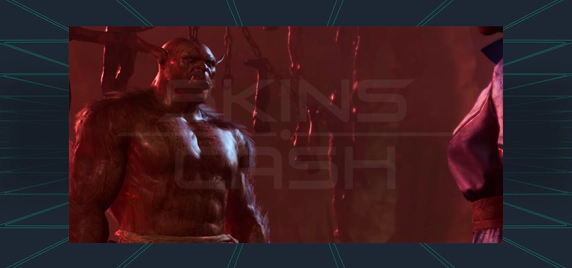Kill Chop in BG3
Table of Contents
Navigating the moral and strategic choices in Baldur’s Gate 3 is akin to threading a needle, especially when it comes to deciding the fates of its many characters. Among these decisions, choosing to kill Chop bg3 presents a unique dilemma with implications that ripple through a player’s journey. This guide serves as a comprehensive resource for players wrestling with this decision, providing insight into the consequences and benefits of such an action within the game. Understanding these factors is crucial, as they can significantly impact the unfolding narrative and gameplay experience.
Our exploration begins with an introduction to Chop, a character whose presence in Baldur’s Gate 3 may not be immediately central but whose fate can influence the game’s intricate social and power dynamics. We delve into where Chop can be found within the game’s expansive world, followed by a thorough examination of the reasons a player might choose to kill Chop bg3, as well as the potential repercussions of this choice. Through this article, readers will gain a nuanced understanding of not only Chop’s role within Baldur’s Gate 3 but also the broader implications of their choices in a game that thrives on moral complexity.
Who is Chop?
 Chop is a bugbear encountered in Baldur’s Gate 3, specifically within the Mind Flayer Colony beneath Moonrise Towers. Tasked with butchering humanoids to create Intellect Devourers, Chop operates under a heavy mental affliction that makes him subservient yet deeply unhappy. Despite his role, he exhibits a desire for death, pleading with players during interactions to end his misery. However, if attacked, he defends himself, likely due to his inability to contravene his orders. Upon death, Chop expresses a sense of liberation. Intriguingly, he is not controlled by a Mind Flayer Parasite, as evidenced by his lack of one upon death.
Chop is a bugbear encountered in Baldur’s Gate 3, specifically within the Mind Flayer Colony beneath Moonrise Towers. Tasked with butchering humanoids to create Intellect Devourers, Chop operates under a heavy mental affliction that makes him subservient yet deeply unhappy. Despite his role, he exhibits a desire for death, pleading with players during interactions to end his misery. However, if attacked, he defends himself, likely due to his inability to contravene his orders. Upon death, Chop expresses a sense of liberation. Intriguingly, he is not controlled by a Mind Flayer Parasite, as evidenced by his lack of one upon death.
Where to Find Chop in Baldur’s Gate 3
Chop, the bugbear in Baldur’s Gate 3, resides in the Mind Flayer Colony located beneath Moonrise Towers. Players can find him in Act 2 of the game, specifically at coordinates X: 663, Y: -74. Within the game, Chop is often engaged in his grim task in the Oubliette, where he can be heard talking to himself through the walls. For those looking to interact with him directly, he can be located in the Morgue of the Mind Flayer Colony. Here, Chop holds the key to a cage containing an entity known as Us. Players have the option to persuade Chop to hand over the key, pickpocket him, or confront him to obtain it.
Should You Kill Chop?
When deciding whether to kill Chop in Baldur’s Gate 3, players face a moral dilemma. Chop, a bugbear, is clearly suffering, expressing a desire for death to escape his misery. He reaffirms this when players offer to end his suffering, responding with a desperate plea for release. Despite his wish to die, Chop will defend himself if attacked, driven by his conditioned obedience.
Another practical reason to consider killing Chop is to obtain the key to Us’s cage. This key is crucial for those who wish to free Us and gain the Conjure Us spell. While it is possible to acquire the key through persuasion or pickpocketing, engaging Chop directly might be inevitable if these attempts fail.
Players should be aware that killing Chop will provoke the Intellect Devourers around him, adding a layer of challenge. However, once defeated, Chop’s last words, “Free at last,” signify his relief, allowing players to collect valuable items from his body. This action, while harsh, ends Chop’s torment and potentially aids in progressing through the game’s narrative.
Conclusion
Throughout our examination of whether to kill Chop in Baldur’s Gate 3, we’ve delved into the intricate web of morality and strategy that defines the game. From understanding Chop’s character—a bugbear ensnared in a life of suffering within the Mind Flayer Colony—to uncovering the layers of consequence surrounding his potential death, we’ve highlighted how this choice not only impacts the player’s moral compass but also the practical unfolding of the game’s narrative. It becomes clear that the decision to end Chop’s misery, while fraught with ethical considerations, opens up avenues for deeper immersion into the game’s complex world.
The significance of such choices in Baldur’s Gate 3 underscores the game’s commitment to presenting players with dilemmas that challenge both their strategic acumen and their philosophical views on mercy and justice. Deciding Chop’s fate is emblematic of the broader implications of player decisions in shaping the game’s narrative, offering a profound reflection on the power and consequences of choice within a virtual realm. As players navigate these moral labyrinths, they carve out their unique path, contributing to the overarching theme that in Baldur’s Gate 3, every decision counts, coloring the world with shades of moral complexity that linger long after the game is over.




